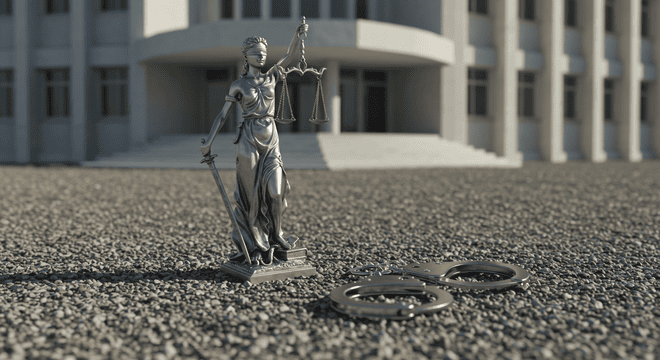
Nigeria and the Curse of Institutionalised Corruption
In Nigeria, corruption is not merely a vice—it is a way of life, embedded deep into the operating systems of state. It is institutionalised, sustained by complicit actors across all branches and levels of government, and normalized in a way that has numbed the collective conscience of a nation. From the police force to the judiciary, anti-corruption bodies to schools, hospitals, customs, and public procurement offices, corruption is both the thread and the fabric of everyday governance. What began as a cancerous cell in isolated corners of government has metastasised into the DNA of Nigeria’s institutions.
The Nigerian Police Force, one of the most visible arms of the state, exemplifies this rot. A force meant to enforce the law has long abandoned that mandate in favor of extortion and brutality. From roadside checkpoints where officers shamelessly demand “something for the boys,” to police stations where bail is sold to the highest bidder despite constitutional provisions to the contrary, the public has come to accept this dysfunction as normal. The disbanded SARS unit, whose reign of terror sparked the #EndSARS movement in 2020, was a chilling symbol of institutionalised violence and corruption. Investigations revealed officers who not only extorted citizens but engaged in torture and extra-judicial killings. Few were held accountable. This impunity reinforces the idea that police uniforms are licenses for predation, not protection.
When one turns to the Economic and Financial Crimes Commission (EFCC), the very agency designed to fight financial crimes, the picture is not more hopeful. Once celebrated for its aggressive pursuit of corrupt officials, the EFCC has, over time, become entangled in its own scandals. The arrest and investigation of its former acting chairman, Ibrahim Magu, in 2020 for alleged mismanagement of seized assets and over ₦500 billion in unaccounted funds, sent shockwaves across the country. Allegations that the EFCC serves more as a political weapon than an impartial enforcer of justice have eroded its credibility. Selective prosecution and the safe passage often granted to politically connected looters have turned anti-corruption into a game of convenience.
The judiciary, which should be the last hope of the common man, often serves as the final nail in the coffin of justice. With judges accused of collecting bribes in dollars and delivering judgments that defy logic, Nigeria’s courts have become theatres where justice is auctioned. In 2016, a dramatic raid by the Department of State Services uncovered millions in cash from the homes of senior judges. Though some were dismissed or retired, others quietly returned to the bench, proving that even the appearance of accountability can be faked. The case of former Chief Justice of Nigeria, Walter Onnoghen, found guilty of failing to declare suspicious assets, further highlighted the vulnerability of the judiciary to internal compromise and external manipulation.
Among politicians, corruption is not a scandal—it is standard operating procedure. The scale of looting is staggering. Former Petroleum Minister Diezani Alison-Madueke is alleged to have stolen over $2.5 billion through phantom contracts and kickbacks. James Ibori, former Governor of Delta State, was celebrated at home even after being convicted in the UK for laundering over £50 million of state funds. Nigeria continues to recover stolen billions linked to the late General Sani Abacha, decades after his death—funds that continue to turn up in Swiss and American banks. This recycled kleptocracy, in which looters are reabsorbed into public life through political realignments or plea bargains, feeds the perception that crime does pay—as long as you’re powerful enough.
Yet, the real engine of corruption is the civil service—the quiet and seemingly faceless bureaucracy that controls government records, procurement, and payment systems. Here, contracts are inflated beyond imagination, ghost workers haunt payrolls, and entire budgets vanish through “virement” and creative accounting. The case of Abdulrasheed Maina, who embezzled billions in pension funds and was secretly reinstated into the civil service while a fugitive, is an emblem of the impunity civil servants enjoy. This group forms the unbreakable link between corrupt politicians and the misappropriated public funds that never reach their intended destinations.
In customs and border control, bribery and smuggling are institutionalised. Import duties are manipulated, prohibited items find their way into the country, and underhanded deals are struck in plain sight. A container flagged for red inspection today could be cleared tomorrow with the right “appreciation.” The loss in government revenue is colossal, and the long-term effects are even more damaging—cheap substandard goods flood the markets while local industries collapse.
In public procurement, the rot is mechanised. Contracts are awarded not based on capacity or quality but on kickbacks and political loyalty. Roads are constructed at triple the standard rate and still fall apart after the first rains. School buildings are commissioned with much fanfare, yet the classrooms remain empty, lacking furniture and teachers. Entire budgets can be swallowed by feasibility studies that never see execution. The public procurement system in Nigeria, although governed by clear legal frameworks, is one of the most manipulated spaces in government.
The education sector has not been spared. From inflated contracts to construct classrooms, to the buying and selling of grades in secondary schools and universities, corruption here is breeding the next generation of ethically bankrupt citizens. Admission rackets, “sorting” of lecturers for grades, and diversion of intervention funds by school administrators are all part of the dismal reality.
In healthcare, corruption kills—literally. Funds meant for primary health care centres are diverted, leading to understaffed and ill-equipped hospitals. Drugs are stolen from government warehouses and sold in open markets. In 2018, the Nigerian Senate uncovered a ₦10 billion scandal involving the National Health Insurance Scheme, where funds meant to provide health coverage were misused or simply vanished. For the average Nigerian, this means suffering in silence, or paying out-of-pocket for services that were already paid for by the state.
What is particularly frightening about this entrenched corruption is that it is often not seen as a problem by those within the system—it is seen as entitlement. A cut. A share. A reward for enduring poor salaries and inadequate infrastructure. The average civil servant, customs officer, or local government chairman does not see his cut as theft, but as survival.
And so, Nigeria’s institutions, rather than acting as bulwarks against corruption, have become factories for its manufacture and distribution. This is why anti-corruption campaigns, while loud in rhetoric, often fail—they are attempting to use corrupted tools to repair corruption. It is akin to curing a poisoned patient with the same toxin that caused their illness.
The question is no longer whether Nigeria is corrupt, but whether it can be un-corrupted. This will not happen through slogans or selective scapegoating. It will require a systemic purge. It will require automated and digitised systems that remove human discretion. It will require strengthening the independence of the judiciary, protecting whistleblowers, enforcing asset declarations, and making transparency the norm, not the exception. Most importantly, it will require that corruption ceases to be a bipartisan enterprise tolerated by the elite.
Until this happens, Nigeria will remain a nation betrayed by its own institutions—trapped in a loop where looters are celebrated, and integrity is punished. A nation where the gatekeepers have become the looters, and where hope, like public funds, is constantly stolen.
Related Posts

Highway or Highway Robbery? A Deep Dive into the Cost, Contracts, and Controversies of the Lagos–Calabar Coastal Project

High-Profile Prosecutions in Nigeria (1999–2025): A Comprehensive Analysis of Law, Politics, Trends, and the Quest for Credible Accountability
